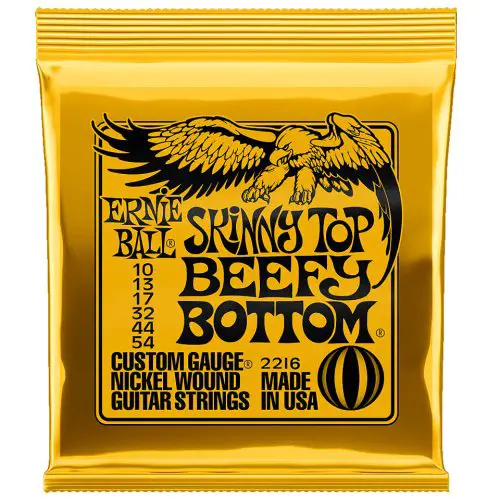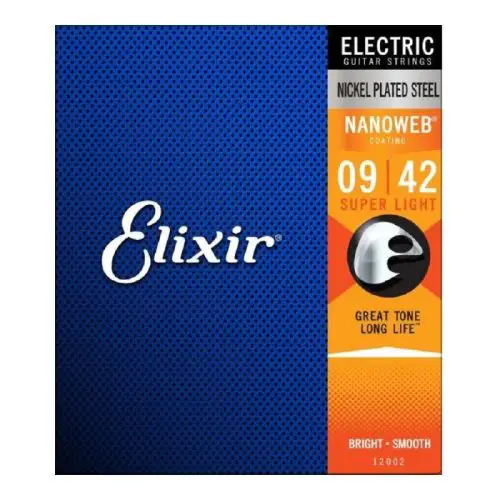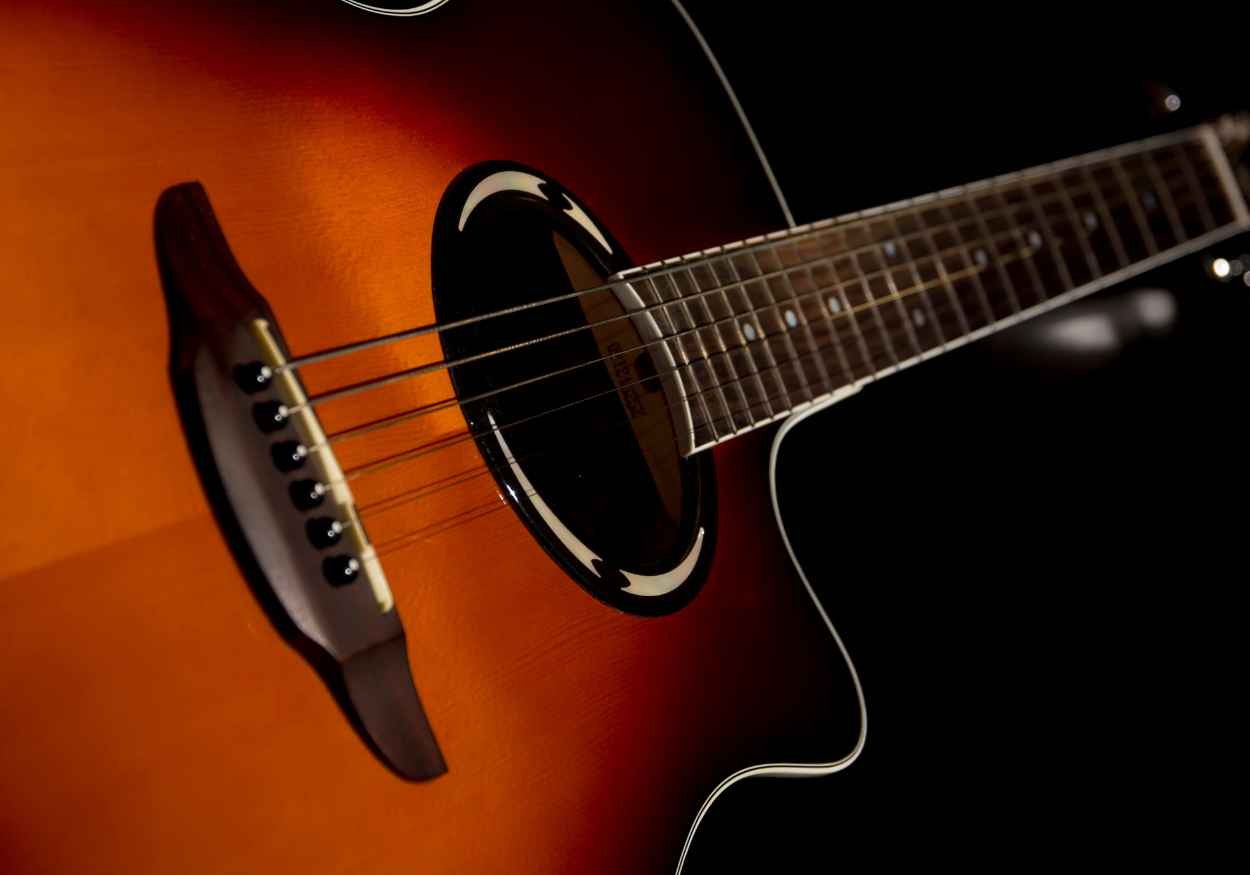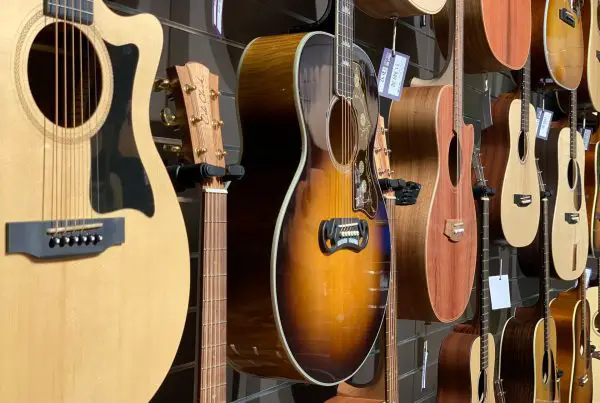The best string gauge for a beginner is a personal preference, but generally, lighter gauge strings are recommended. Lighter gauge strings, such as .009 or .010, are easier to press down on the fretboard, making it more comfortable for beginners to play. They also require less finger strength and are less likely to cause pain or discomfort in the fingertips.
However, it’s important to note that the choice of string gauge ultimately depends on the individual’s playing style, finger strength, and musical preferences. Some beginners may prefer slightly heavier strings, such as .011 or .012, if they are playing music that requires a thicker tone or if they have stronger fingers and find it easier to control heavier strings.
When starting out, it’s a good idea for beginners to try out different string gauges to see which one feels the most comfortable and suits their style of playing. Trying out different gauges can help beginners discover what works best for them and allows them to adapt as they progress and develop their skills.
In addition to string gauge, other factors such as guitar action, scale length, and playing style can also affect the playability of the guitar. Beginners should take these factors into consideration and experiment with different settings to find what feels and sounds best for them.
It’s worth noting that lighter gauge strings are more prone to breakage, especially if the player tends to strum aggressively or bend strings frequently. In such cases, opting for a slightly heavier gauge, like .010 or .011, can provide more durability and reduce the likelihood of string breakage.
Now, let’s delve a little deeper into the pros and cons of different string gauges and how they can affect a beginner’s guitar playing experience.
| Guitar Type | Recommended String Gauges | Advantages | Disadvantages |
|---|---|---|---|
| Acoustic | Light or Extra Light (.010-.053 or .012-.054) | – Easier on the fingers – Balanced tone – Versatile for various genres |
– Thinner tone compared to heavier gauges – Less sustain – Easier to break for heavy strummers or benders |
| Electric | Extra Light or Super Light (.009-.042 or .008-.038) | – Easier to play – Smooth and effortless fretting – Suitable for various music genres |
– Brighter tone compared to heavier gauges – May lack thickness for some heavy music genres |
What are the different string gauges available for beginners?
There are several different string gauges available for beginners to choose from:
1. Extra Light (.009-.042): Extra light strings are the lightest gauge available and provide the easiest playability for beginners. They are ideal for players with less finger strength and are commonly used in genres such as pop, rock, and country.
2. Light (.010-.046): Light gauge strings strike a balance between playability and tone. They require slightly more finger strength than extra light strings but still offer a comfortable playing experience. Light strings are versatile and suitable for various genres, including blues, jazz, and rock.
3. Medium (.011-.052): Medium gauge strings offer a thicker tone and require more finger strength to play. They are commonly used in genres like blues, classic rock, and heavy metal. Beginners with stronger fingers or those who prefer a heavier sound may opt for medium gauge strings.
4. Heavy (.012-.056): Heavy gauge strings provide a thicker tone and are suitable for players who have developed significant finger strength. They offer a more robust sound and are commonly used in genres such as metal, hard rock, and jazz.
5. Custom Sets: Some manufacturers offer custom string sets that cater to individual preferences. These sets often allow players to mix and match different gauges for each string to achieve a specific tone or feel.
When considering which string gauge to choose, beginners should consider their playing style, finger strength, and the genre of music they intend to play. It’s also important to take into account the guitar’s neck and set up, as heavier gauge strings may require adjustments to the truss rod or saddle height for optimal playability.
Experimenting with different string gauges is essential to finding the right fit. Beginners should try out different sets over time to determine which gauge feels the most comfortable and allows them to progress in their playing without causing undue strain or discomfort.
Remember, the choice of string gauge is subjective, and what works for one player may not work for another. It ultimately comes down to personal preference and finding the perfect balance of playability, tone, and comfort for each individual.
Also Read: String Brand Impact on Tone: Unraveling the Secrets
Best string gauge for beginner (acoustic guitar)

Light gauge string is great for acoustic
When it comes to acoustic guitars, the best string gauge for beginners is typically light or extra light gauge strings. These gauges usually range from .010 to .053 or .012 to .054, respectively.
One important thing to note is that acoustic guitars generally require slightly heavier gauge strings compared to electric guitars because of the guitar’s larger size and need for more volume and projection. This means that even light or extra light gauge acoustic strings may still provide enough tension and volume for a satisfying playing experience.
As with any guitar setup, it’s essential to consider other factors such as the guitar’s action, neck relief, and playing style when selecting string gauges. If the acoustic guitar has a higher action, it may be beneficial to choose a slightly lighter gauge to reduce the amount of finger pressure needed to fret the strings.
Ultimately, the best string gauge for a beginner acoustic guitarist is a personal choice based on comfort, playability, and musical preference. It’s recommended for beginners to try out different string gauges to find the one that feels the most comfortable and allows them to progress in their playing without experiencing excessive strain or discomfort. Seeking advice from experienced guitarists or consulting with a guitar technician can also help beginners make an informed decision.
Best string gauge for beginner (electric guitar)

Super light gauge string is great for electric
The best string gauge for a beginner on an electric guitar is typically extra light or super light gauge strings. These gauges usually range from .009 to .042 or .008 to .038, respectively.
Extra light gauge strings are the lightest option and are commonly recommended for beginners. These strings are easier to press down and require less finger strength, making it more comfortable for beginners to play. They provide a smooth and effortless playing experience, allowing beginners to focus on developing their technique without excessive strain on their fingers.
Super light gauge strings offer a similar ease of playability and are also favored by many beginner electric guitarists. They provide a slightly thicker tone compared to extra light gauge strings while still offering a comfortable playing experience. Super light strings are particularly suitable for beginners who want a bit more substance in their tone without sacrificing playability.
Both extra light and super light gauge strings are versatile and can be used for a wide range of musical genres. These gauges are commonly used in genres such as pop, rock, and blues, making them an excellent choice for beginners who are interested in playing these styles of music.
It is important to note that lighter gauge electric guitar strings can produce a brighter tone compared to heavier gauges. However, these tonal differences can be adjusted using the guitar’s tone controls or through the use of effects pedals and amplifiers.
When selecting a string gauge for the electric guitar, beginners should also consider their playing style and musical preferences. If a beginner is interested in playing heavier genres like metal or hard rock, they may want to consider starting with a light gauge string (such as .010 or .011) to strike a balance between playability and achieving the desired tone.
How does string gauge affect the sound of a guitar?
The string gauge of a guitar can have a significant impact on its sound. Generally, lighter gauge strings produce a brighter and thinner sound, while heavier gauge strings produce a richer and fuller tone. The differences in sound primarily arise from the tension and mass of the strings.
Lighter gauge strings have less tension and require less force to fret and bend, resulting in a brighter sound with faster attack and more sustain. They are often favored by players who want a crisp and articulate sound, particularly in genres such as pop, rock, and country.
On the other hand, heavier gauge strings have higher tension and require more finger strength to play. This results in a thicker and more powerful sound with a longer sustain. They provide more bottom-end response and are well-suited for genres such as blues, jazz, and heavy metal, where a warm and full-bodied tone is desired.
In addition to the tension and tone, different string gauges can also impact intonation and playability. When changing string gauges, adjustments to the guitar’s setup may be necessary to ensure proper intonation, which affects the accuracy of the pitches along the neck. Heavier gauge strings may require adjustments to the truss rod, bridge saddle height, and possibly even the nut. It is recommended to have these adjustments made by a professional guitar technician to achieve optimal playability and sound.
It is also important to mention that the tonal differences between string gauges may vary depending on the individual guitar and player’s technique. Factors such as the guitar’s body style, wood type, and electronics can interact with the string gauge to create a unique and personal sound.
Ultimately, the choice of string gauge should be based on personal preference, playing style, and the desired tone. It’s always recommended for guitarists to experiment with different string gauges to discover which one best suits their playing style and musical preferences.
Also Read: String Gauge Influence on Guitar Sound: Lighter vs. Heavier
Summary
In conclusion, when it comes to choosing the best string gauge for beginners, it’s all about finding the right balance between playability, tone, and personal preference. Lighter gauge strings, such as extra light or super light, are generally recommended for beginners due to their ease of playability and comfort on the fingers. These gauges offer a smooth and effortless playing experience, allowing beginners to focus on honing their skills without straining their fingers.
While lighter gauge strings may have disadvantages like a slightly thinner tone or increased risk of breakage, these can be mitigated through adjustments and personal technique. It’s important for beginners to experiment with different string gauges and consult with experienced guitarists or professionals to find the perfect match for their playing style and musical goals.
Remember, the journey of learning the guitar is about exploration and finding what works best for you. So, strum on, embrace the learning process, and let the music guide you on your path to becoming a skilled guitarist.






